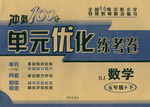题目内容
完形填空
Martin Luther King, the son of a minister in the church, was born in 1929 in the USA. He won an entrance prize to a college when he was 15. After
1 , he became a minister 2 the church. Then, he 3 in Philadelphia until 1951.
4 slavery was ended in 1865, the separation of blacks and whites 5 still continued. Laws passed to forbid whites to marry 6 blacks. There were 7 shops, restaurants, hospitals, buses, trains and schools for blacks. Blacks were not 8 to vote in the southern states 9 they passed a reading test.
King thought it was right and necessary 10 blacks to win equal civil rights 11 peaceful revolution, not by fighting and killing. He 12 the government to set blacks free and give them 13 rights. In 1964, he got the Nobel Prize for Peace and 14 the whole of the $ 54,600 prize to the 15 movement. In the same year a new Civil Rights Act was 16 to treat blacks equally. In 1965 a new Voting Rights Bill became 17 . From then on, all blacks had the rights 18 .
King was murdered on April 14th, 1968, because he made many 19 in the black liberation movement. 20 , his struggle had already changed the society. He was considered as an important leader in the black liberation movement.
|
(1) A.graduation |
B.work |
C.college |
D.education |
|
(2) A.at |
B.in |
C.from |
D.for |
|
(3) A.lived |
B.studied |
C.worked |
D.played |
|
(4) A.Became |
B.Before |
C.Unless |
D.Although |
|
(5) A.were |
B.are |
C.was |
D.is |
|
(6) A.with |
B./ |
C.to |
D.for |
|
(7) A.same |
B.different |
C.separated |
D.alone |
|
(8) A.forbidden |
B.made |
C.allowed |
D.had |
|
(9) A.after |
B.until |
C.while |
D.unless |
|
(10) A.for |
B.of |
C.to |
D.with |
|
(11) A.in |
B.with |
C.for |
D.by |
|
(12) A.made |
B.let |
C.forced |
D.told |
|
(13) A.different |
B.same |
C.fair |
D.equal |
|
(14) A.gave |
B.received |
C.had |
D.offered |
|
(15) A.peaceful |
B.fighting |
C.revolution |
D.freedom |
|
(16) A.learned |
B.succeeded |
C.passed |
D.permitted |
|
(17) A.right |
B.law |
C.habit |
D.advice |
|
(18) A.to go to school |
B.to vote |
||
|
C.to take buses |
D.to go shopping |
||
|
(19) A.friends |
B.bosses |
C.enemies |
D.officials |
|
(20) A.So |
B.And |
C.However |
D.But |
解析:
|
(1) after graduation 指“毕业后”,在此相当于After he graduated from college的作用。(2) in the church 指“在教会中”,该句的意思是:毕业后,他成了教会里的一名牧师。(3) studied 指“学习,研究”。(4) 根据语境,此处应用although引导让步状语从句,意为“尽管,虽然……”。(5) 该句的主语是the separation of blacks and whites,因此要用was。(6) marry 作“和……结婚,娶了……,嫁了……”时是个及物动词,其后直接跟宾语。此时一定不要受汉语的影响,不要使用with。(7) separated 作“隔离开的,单独的”。由于种族隔离制度,为黑人设立了单独的商店、餐馆、医院、学校等。(8) be allowed to do sth. 是个常用的搭配。意为“被准许”。如:He was allowed to borrow books from our library.准许他借我们图书的书。(9) unless 是个具有否定意义的从属连词,它连接的从句应是肯定句。该句的意思是“在南部各州除非黑人通过一次阅读测试,否则他们是不能投票选举的”。(10) It is right/ necessary for sb. to do sth. 是个常用的句型。(11) by 在此是个介词,作“通过,靠”等讲,指方式、手段。(12) force sb. to do sth. “强迫某人做某事”是个固定搭配。(13) equal right 平等权利。(14) give sth. to do sb.=give sb. sth. “把……给了某人”。(15) freedom 是个名词在此作定语。(16) pass law 指“通过法律”,该处用的是被动主语态。如:A new law was passed yesterday.昨天通过了一条新的法律。(17) become law 成了法律,该句译为“在1965年新的选举法案成了法律”。(18) to vote 不定式作后置定语,修饰其前的名词the right。have the right to do sth.指“有了做某事的权利”。(19) make enemies “树敌”而“交朋友”是make friends (with)。该句的意思是“因为马丁在黑人解放运动中树敌很多,所以才于1986年4月14日被暗杀了。”(20) However 在此表转折,而且常用逗号与其他成分隔开。 |

 云南师大附小一线名师提优作业系列答案
云南师大附小一线名师提优作业系列答案 冲刺100分单元优化练考卷系列答案
冲刺100分单元优化练考卷系列答案
| |||||||||||||||||||||||||||||||||||||||||||||||||||||||||||||||||||||||||||||||||||||||||||||||||||||||||||||||||||||||||||||||||||||||||||||||||||||||||||||||||||||||||||||||||||||||||||||||||||||||||||||||||||||||||||||||||||||||||||||||||||||||||||||||||||||||||||||||||||||||||||
| |||||||||||||||||||||||||||||||||||||||||||||||||||||||||||||||||||||||||||||||||||||||||||||||||||||||||||||||||||||||||||||||||||||||||||||||||||||||||||||||||||||||||||||||||||||||||||||||||||||||||||||||||||||||||||||||||||||||||||||||||||||||||||||||||||||||||||||||||||||||||||